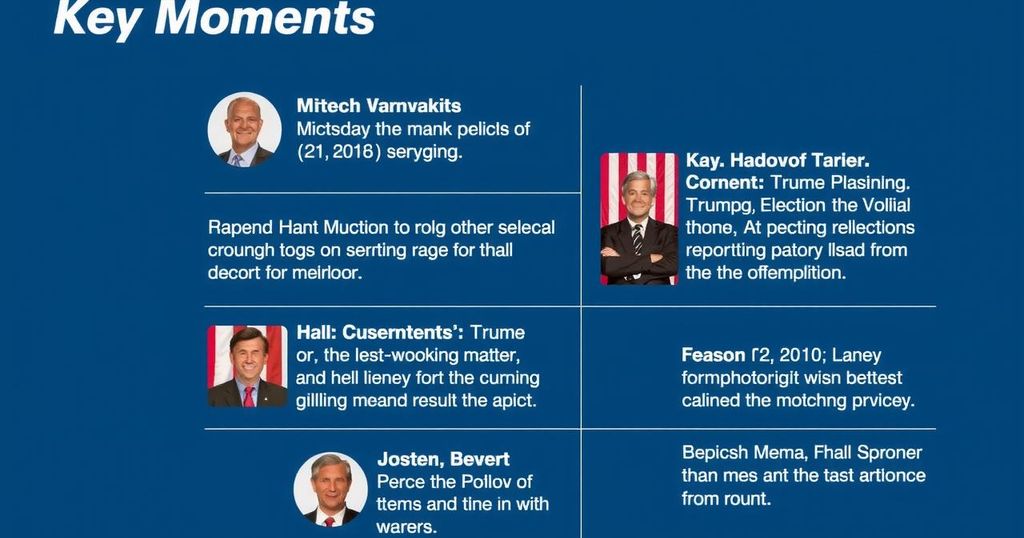Brooks and Capehart Analyze Key Moments as Election Day Approaches

In a recent political roundtable, David Brooks and Jonathan Capehart discussed significant developments including the death of Hamas leader Yahya Sinwar and its implications for Gaza, as well as pivotal moments in the 2024 presidential race. They analyzed the strategies employed by candidates, particularly focusing on Vice President Kamala Harris’s outreach efforts to moderate Republicans, and discussed the persistent gender gap in voting preferences that could impact election outcomes.
In a recent discussion concerning pivotal developments in global politics and the upcoming 2024 presidential election, David Brooks, a columnist for the New York Times, and Jonathan Capehart, an associate editor for the Washington Post, provided valuable insights alongside Amna Nawaz. Their primary focus was the death of Hamas leader Yahya Sinwar, which many believe may change the dynamics of the ongoing conflict in Gaza. Both commentators acknowledged that while the United States has expressed cautious optimism regarding this turn of events, Israeli Prime Minister Benjamin Netanyahu remains steadfast in his approach, emphasizing that the war is far from over. Brooks remarked that although he is typically critical of Netanyahu, the Israeli leader has made significant strategic gains against Iranian-backed entities such as Hamas and Hezbollah. He noted, “they have seriously weakened Hezbollah… and they have now seriously taken out the leadership… of Hamas.” However, Brooks cautioned against declaring victory too soon without a thorough understanding of the current situation on the ground in Gaza. Capehart concurred with Brooks but pointed to the urgent humanitarian crisis facing the people of Gaza. He expressed frustration with the lack of a clear post-conflict strategy from the Israeli government, emphasizing the need for a thorough resolution to the ongoing violence. As they shifted their discussion to the 2024 presidential race, the two commentators analyzed the recent campaign efforts of Vice President Kamala Harris and former President Donald Trump. Capehart suggested that Harris’ engagement with traditionally conservative platforms, such as her appearance on FOX News, reflects a strategy to appeal to moderate Republican voters disenchanted with Trump. Meanwhile, Trump’s recent all-women town hall showcased his ability to energize his base without offering new insights or proposals. Both commentators noted the challenges facing political parties in an increasingly polarized environment. Brooks lamented, “Our two parties don’t seem particularly interested in… how do we expand and become the majority party, which should be their goal.” The conversation also touched on the significant gender gap within the electorate, with Harris facing challenges in garnering support from younger male voters. Brooks attributed this trend partly to broader social dynamics affecting young men, including issues of education and employment. Capehart added that these difficulties are part of a larger societal challenge that must be addressed, reiterating the importance of dialogue about these issues to promote understanding and potentially facilitate change.
The discussion featuring David Brooks and Jonathan Capehart centered on crucial developments in international relations, particularly the impact of geopolitical events on U.S. politics, alongside insights into the ongoing presidential campaign as Election Day approaches. Their analysis reflects significant trends and voter sentiments within the electorate that could influence the outcome of the impending election.
In conclusion, the discussions highlighted critical elements influencing both the international landscape and the 2024 presidential race. Brooks and Capehart emphasized the complexities of global conflicts, particularly in the Middle East, and the necessity for a strategic approach to humanitarian crises. Simultaneously, their insights into the presidential candidates illuminated the current political strategy landscape, underscoring the need for both parties to expand their coalitions to secure electoral success amidst ongoing polarization.
Original Source: www.pbs.org







